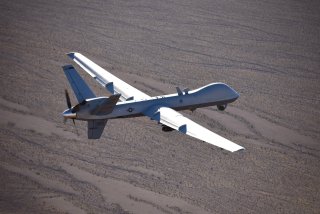Can Innovation Accelerators Deliver Next-Gen Military Hardware?
Fast-growing businesses are stepping up efforts to increase cooperation with the Pentagon.
Fast-growing small and medium-sized businesses are stepping up efforts to increase cooperation with the Pentagon as they spend internal research and development funds in pursuit of new technologies. These efforts are intended to anticipate emerging military requirements for future warfare. One such innovator, MAG Aerospace, has established a new group of high-tech innovation laboratories around the country to accelerate internal research and increase collaborative efforts with the National Security Innovation Network (NSIN) and the military services’ research laboratories.
MAG, which began as a small intelligence, surveillance, and reconnaissance company years ago, has exploded into a medium-sized defense company specializing in leveraging dual-use technology and engineering solutions to enhance situational awareness, command and control technologies, cyber security, satellite systems, and electronic warfare, among other technologies.
MAG’s new innovation centers cover a range of technological areas but have the expertise, depth, and intent to conduct groundbreaking research and experimentation. MAG has innovation centers in the Mid-Atlantic, New Jersey, and North Carolina, along with a Space Coast innovation center in Florida.
The MAG-operated Mid-Atlantic innovation center aims to identify new technologies for software-defined radios, artificial intelligence, and network operations. The entire rationale is based on combining dual-use technology from the commercial sector with partnership and collaboration with government customers, especially the military services. The facility includes a radio frequency lab and a mobile lab outfitted for airborne satellite terminal development and performance certification testing, MAG President Mathew Bartlett explained.
“MAG personnel manage day-to-day operations of a large customer
lab facility consisting of thirty-three independent laboratories supporting development, integration, testing, and certification of enabling technologies in artificial intelligence, network operations, software-defined radios, open-source software, and 5G,” Bartlett said. “At this innovation center, we ensure that industry radio, software-defined radio, and waveform development efforts are cost-effective and align with our customer’s domain architecture,” he added.
Kris Osborn is the defense editor for the National Interest. Osborn previously served at the Pentagon as a Highly Qualified Expert with the Office of the Assistant Secretary of the Army—Acquisition, Logistics & Technology. Osborn has also worked as an anchor and on-air military specialist at national TV networks. He has appeared as a guest military expert on Fox News, MSNBC, The Military Channel, and The History Channel. He also has a Master's Degree in Comparative Literature from Columbia University.
Image: DVIDS.

